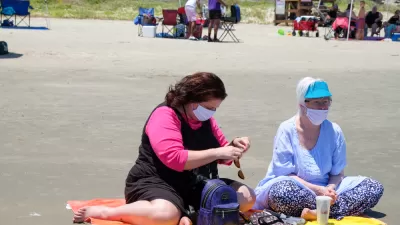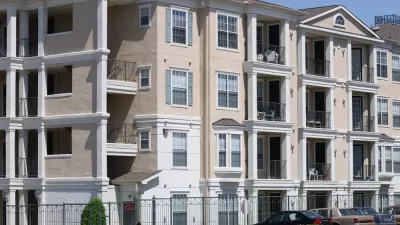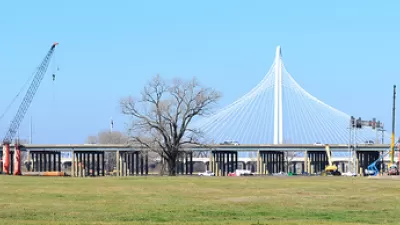Between 1990 and 2016, the Dallas-Fort Worth Metro Area added more jobs than New York City. The overwhelming majority of the new jobs are located in the suburbs.

Several large corporations have opened headquarters in the suburbs of the Dallas-Fort Worth area, the core city has not grown at the same pace. "Recent headlines about large corporate relocations and consolidations, led by the highly publicized moves of Toyota, Liberty Mutual, and State Farm, are just the latest wave of a long trend of employers choosing to locate outside Dallas’s city limits, particularly in Collin and Tarrant counties," W. Michael Cox and Richard Alm report in D Magazine. Companies choosing suburban locations is common in a number of metropolitan areas, but the disparity in Dallas is much larger than other cities around the state and the country. "The Austin, Houston, and San Antonio MSAs haven’t kept pace with DFW in net job creation since 1990. However, their core cities all added more than twice as many jobs as Dallas," Cox and Alm write.
There are number of different theories as to why the Dallas suburbs have pulled in more businesses than the city has. "Suburbs often offer an edge in cost, a key to any business. It starts with cheaper real estate. Taxes are likely to be lower, too. Suburban governments may be business-friendly, eager to bend over backwards to accommodate new employers by cutting red tape and offering financial incentives," Cox and Alm write. They also theorize that the core city is less attractive to many employees who might prefer to live in cities like Plano or Frisco.
FULL STORY: Why Dallas Hasn’t Gotten Its Share of DFW’s Employment Boom

Alabama: Trump Terminates Settlements for Black Communities Harmed By Raw Sewage
Trump deemed the landmark civil rights agreement “illegal DEI and environmental justice policy.”

Study: Maui’s Plan to Convert Vacation Rentals to Long-Term Housing Could Cause Nearly $1 Billion Economic Loss
The plan would reduce visitor accommodation by 25% resulting in 1,900 jobs lost.

Planetizen Federal Action Tracker
A weekly monitor of how Trump’s orders and actions are impacting planners and planning in America.

DC Extends Application Window for Outdoor Dining Permits
District restaurants will have until the end of November to apply, but businesses with permits in rush hour parking lanes must end operations on July 31.

Wind Energy on the Rise Despite Federal Policy Reversal
The Trump administration is revoking federal support for renewable energy, but demand for new projects continues unabated.

Passengers Flock to Caltrain After Electrification
The new electric trains are running faster and more reliably, leading to strong ridership growth on the Bay Area rail system.
Urban Design for Planners 1: Software Tools
This six-course series explores essential urban design concepts using open source software and equips planners with the tools they need to participate fully in the urban design process.
Planning for Universal Design
Learn the tools for implementing Universal Design in planning regulations.
Caltrans
Smith Gee Studio
Institute for Housing and Urban Development Studies (IHS)
City of Grandview
Harvard GSD Executive Education
Toledo-Lucas County Plan Commissions
Salt Lake City
NYU Wagner Graduate School of Public Service





























